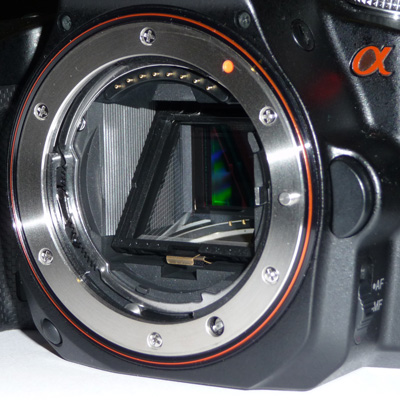
This page concentrates on camera terms and simple definitions for someone starting out as an underwater photographer. Each section contains a link to further reading, more in depth on each subject.
Lens
A lens is an optical piece of glass that focuses the image as it enters your camera. On a compact camera, the lens is part of the camera, but on more advanced cameras the lenses can be removed or changed. Learn more in depth about lens basics here.
Shutter speed
Shutter = A device located in the camera that controls how much light reaches the sensor
Shutter Speed = The measurement of time that the shutter is open
A camera has a “shutter” that opens and closes to allow light in, just like how opening the blinds in your bedroom will let in light. The shutter speed is the length of time the shutter is open. When the shutter opens, it “reveals” the light (or the scene) to the camera sensor which records the image. The longer the shutter is open, the more light comes in.
Aperture & F-stop
Aperture = An adjustable opening located in a lens which controls the amount of light to reach the sensor
F-stop – The measurement of light allowed in
Aperture and F-stop are used interchangeably.
The aperture is an adjustable opening in the lens that allows different amounts of light in depending on the size of the opening.
F-stop is a relative measure of how much light is let in through the aperture. The F-stop is a number, such as 2.8, 4.0, 5.6 etc. The letter “F” always precedes the number. The larger the number, the smaller the opening the less light is let in. Closing your aperture is called “stopping down” e.g. changing from f/2.8 to f/4. Opening your aperture is called “opening up”, e.g. changing from f/4 to f/2.8.
- f/4 lets in half as much light as f/2.8
- f/5.6 lets in half as much light as f/4
As you can see, the relationship is not linear. The following F-stops each let in half as much light as the previous one: 1.4 2.0 2.8 4 5.6 8 11 16 22 32. Most photography students commit this sequence to memory.
Depth of Field, DOF
DOF = The amount of focus within the image
DOF is the amount of your photo that is in focus. A photo with a small depth of field (f/2.8 for example) will have a blurry background.
ISO
ISO = The measurement of sensor sensitivity
ISO is how sensitive your camera sensor is to light. Most camera sensors have an optimal setting of ISO 100 or ISO 200. Raising the ISO, e.g. changing to ISO 800, makes the sensor more sensitive to light and will have the effect of letting in more light without having to have a slower shutter speed or opening up the aperture. However, raising the ISO does not actually let in more light, and the cost is more noise in the photo and less dynamic range.
Exposure
Exposure = The total amount of light in your photo accounting for the shutter speed, aperture, ISO and strobe
The exposure is the collective function of shutter speed, aperture (F-stop), ISO and flash power when you take your photo. A “good” exposure means your photo has the brightness level that you intended.
Strobe and Flash
A source of light artificially produced, in addition to light from the sun. A strobe or flash produces a burst of light at a very high speed syncing with the camera’s shutter.
Internal flash
Also called a “pop-up flash”. It’s the small flash on your camera that can “pop up” when you need it. High-end dSLR cameras do not have an internal flash. Instead, the have a hotshoe where an external flash can be mounted.
Ambient Light
Ambient light or “available light” is the natural light from the sun already present in the scene.
TTL
Here’s the simplified version: If you have “TTL”, that means your strobe/flash power is automatically adjusted for you, either by the camera, the strobe itself or an additional piece of electronics. If you don’t have “TTL”, that means you must set the power of the strobe/flash manually.
White Balance
White balance is related to color temperature, and is how your camera interprets the colors in your photograph. Different white balance settings will result in a photo that looks more green, blue, red, yellow, etc.
Underwater Housing
A waterproof “case” or house that protects your camera and keeps it waterproof while allowing you to use the controls and take photos. Most cameras require an underwater housing to go underwater, although a few compact cameras are waterproof down to 10-30ft (3-9 meters).
Further Reading










